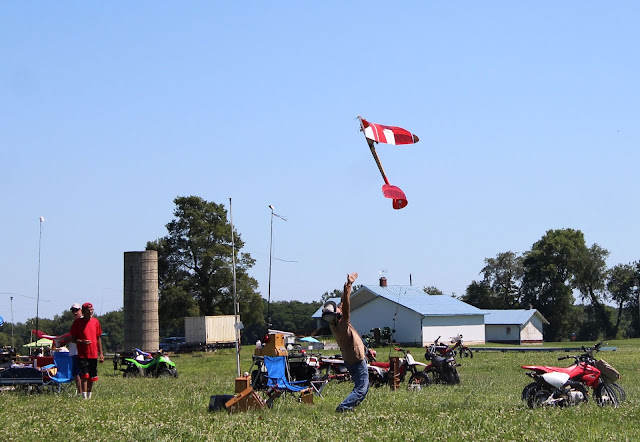 |
| Launch to High Altitude on Very Limited Motor Run |
Besides what might be obvious factors such as using a very powerful motor or building the plane to just over a minimum weight, there are smaller factors that can influence the reliability of the model over time. This could be such things as the proper materials used to cover the model with, and how the power system and timers are setup.
 |
| Covering With Very Thin Plastic Instead of Tissue |
Another thing I really have noticed in the contests I have been to which really isn’t that many, is time management is a big part of it. Now we could make it easier on ourselves and only fly a couple of events but most of us try to fly more events than we can comfortably handle in a day, this is a good thing as there needs to be enough entrants in the various events. To improve what can be flown in limited time factor, we want everything to be as reliable and trouble free as possible. Anytime you have to spend time doing field repairs, trying to get a motor running, etc. is time that could have been spent flying. Another big waste of time in outdoor free flight is retrieving your model; this is why I purchased a used tracking system. A motorcycle would be a big help also, but cannot be used at our club contests.
 |
| Walston Tracking System |
No doubt how I waste the most time from official flights and I know a lot of people are in this situation, is that I do not have a proper place to test my models until I get to the contest. At least I have enough space available I can check out the power pattern on electric models and the transition to glide. It really doesn’t give me a good idea what the duration will be when trying for a 2 minute flight on a larger field. When I flew indoor free flight contests I had a place locally to trim models and a mentor to offer constructive criticism; that was a huge advantage to people that came to contest with untested models.
 |
| Power Pattern Tested for E36 Starduster on this Small Field |
Rubber powered models make it easy to try short flights because you can just put fewer winds in the rubber motor. This really doesn’t give you a good idea of what a contest flight will be like when there is much greater torque provided by the rubber motor. I sure found that out on a rubber model this year that appeared to climb nicely on 200 turns but went into huge stalls at 400 turns.
 |
| Testing on Small Field - Not Great |
Building season has started where I live but there still can be some flyable weather but only during the day. I want to think about how I can improve my probabilities for consistent flights for the next contest season.
Bill Kuhl
No comments:
Post a Comment